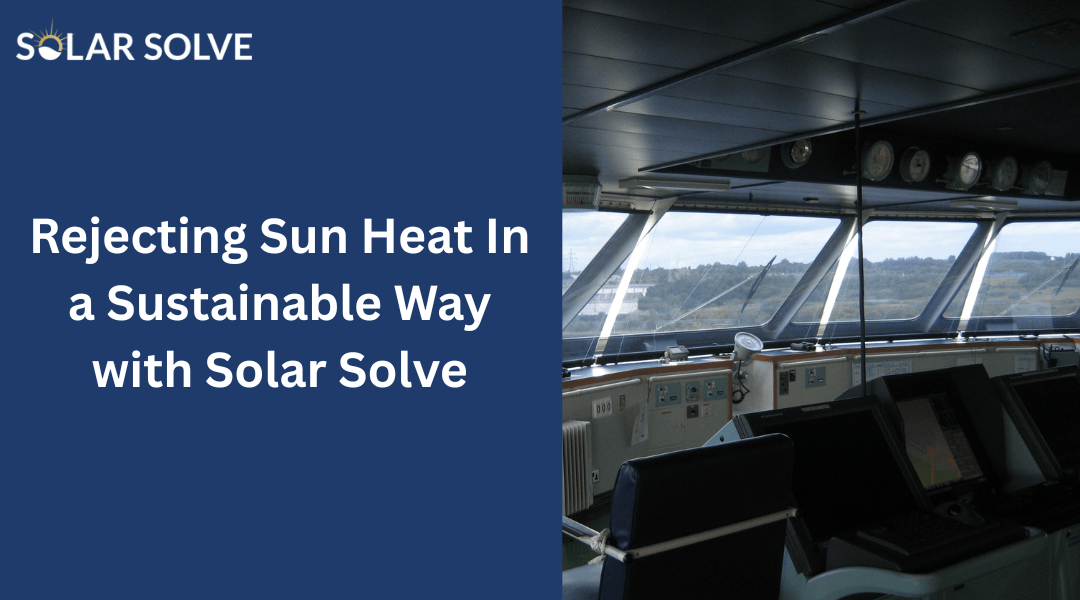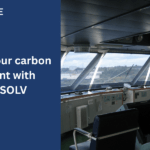The fuel factor: a key challenge facing the shipping industry is the cost and availability of fuel. The trend on prices is upwards as availability declines.
For most owners, fuel efficiency is top of the agenda. However, by identifying major loads on energy consumption such as air conditioning, studies suggest that fuel savings of up to 30% are possible in this area.
SOLASOLV® anti glare, heat rejecting sunscreens for navigation bridge windows address the importance of environmental safety, and are an ideal solution to heat build up, and problems with glare and reflection on the bridge. The specialist Window film rejects up to 87% of the sun’s heat to create a comfortable working environment and reduce the demand on air-conditioning systems, whilst providing a glare-free, clear view for safer navigation.
The sun emits short-wave energy that can pass through glass. When these waves strike the various surfaces on a bridge, they are absorbed and converted into long-wave radiation. Heat is then generated as a by-product of this process. Because glass does not allow long-wave radiation to pass back through it into the atmosphere, heat remains in the enclosed space. With a prolonged build up of long-wave radiation, the inside temperature continues to rise to uncomfortable levels, made even worse when the outside temperature is also high.
This places more demand on the ship’s air-conditioning systems which, when cooling, produce a significant amount of CO2 gas that is harmful to the ozone layer. Air-conditioning systems burn fuel when in use, which increases operating costs and raises the output of exhaust emissions from engines, which are again harmful to the environment. Future predictions in climate change suggest that outdoor temperatures will rise and therefore demand for air-conditioning will become even greater. All of this goes against the current emphasis on creating greener ships and a greener shipping industry!
Supporting Greener Shipping Through Energy Efficiency Solutions
169 countries have signed the Kyoto Protocol, the international treaty on climate change, and emission targets have now been set to help prevent the ozone layer diminishing further. These targets are reductions on current emission levels with financial implications if the limits are exceeded. Countries can purchase carbon credits from other countries if they exceed the set targets but only if the other country has not used their own quota. But, as many economies are built on industries which create emissions, there is concern about the availability of carbon credits for purchase.
Governments and industry regulators are now creating policies and regulations that will help them to achieve the emission targets. Most shipowners are aware of their social responsibility towards the environment, but, like all companies who generate emissions, are likely to be penalised unless they can show they are taking steps to minimise their emissions. Another good reason why SOLASOLV® screens should be installed on your current fleet, as well as being specified for your newbuild programme.


